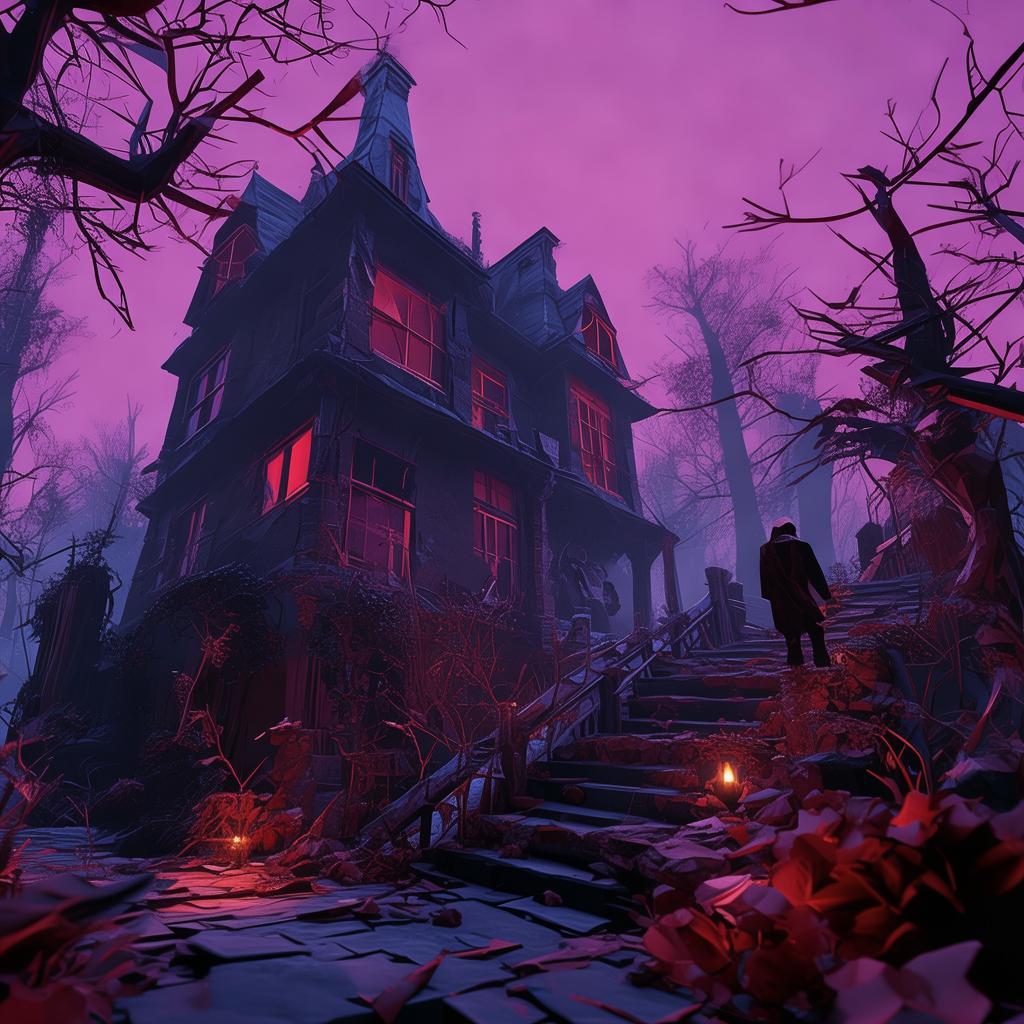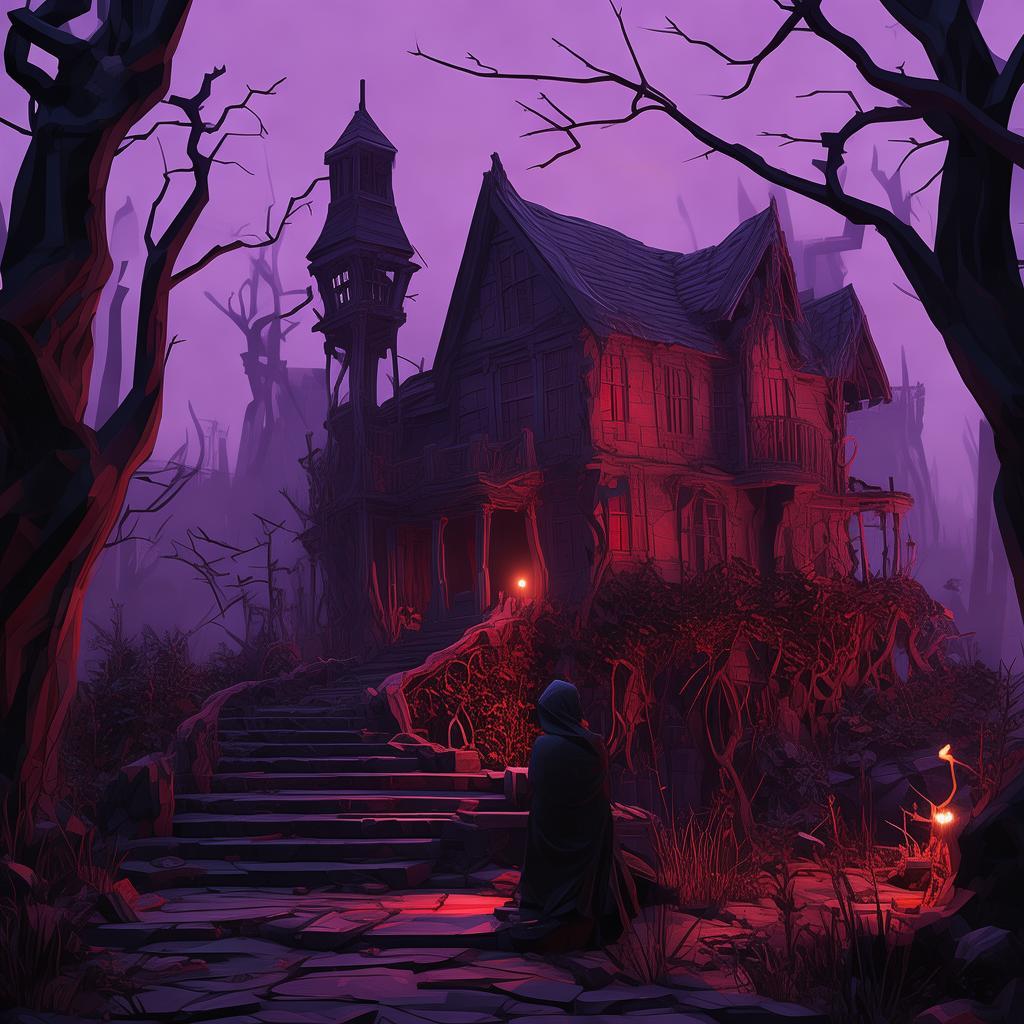Projector's Whisper
In the heart of the old town, nestled between the creaky bones of dilapidated buildings, there stood a cinema that had seen better days. Its marquee flickered with the promise of escapism, but the patrons who once filled its seats were long gone, their laughter replaced by the eerie silence of decay. The cinema was now a relic, a place where only the most daring and curious dared to step inside. Among them was Thomas, a solitary figure who had found a peculiar job managing the screenings of forgotten films in this haunted house of celluloid.
Thomas had a routine. He arrived before dawn, the only living soul in the cinema's shadowy halls. He cleaned, he maintained the old projector, and he prepared the next day's lineup of movies. The cinema had a way of attracting films with cryptic titles and even more enigmatic content. Some of them were classics, others were obscure, and some were simply too bizarre to have any real existence beyond the screen. Thomas often found himself lost in the world of each film, a temporary escape from his mundane life.
One morning, as Thomas was adjusting the projector, a peculiar film was slipped into the schedule. It was a film he had never seen before, titled "The Whispering Projector." The cover was a simple, black rectangle with no title, no credits, and no image. It was as if the film had been torn from existence and only the name remained. The film was set for an early screening, the kind that would cater to the insomniacs and the adventurous souls of the town.
The night of the screening arrived, and Thomas was as excited as he had been in years. The cinema was a shell of its former glory, but he had a habit of imagining the laughter and applause of an audience. As the projector hummed to life, Thomas adjusted the focus, his eyes adjusting to the darkness. The first shot was a close-up of a hand reaching out, fingers splayed, and the screen filled with a whisper, a sound so faint it was almost inaudible to the human ear.
The audience settled into their seats, their eyes adjusting to the darkness. The projector's light flickered, casting long shadows on the walls. The film began, and Thomas watched in awe as the screen came alive with scenes of a cinema similar to his own. The audience laughed, cheered, and even booed. The film was a documentary, or so it seemed, but the scenes grew more surreal with each passing minute.
As the film progressed, the whispers grew louder, more insistent. The audience became a blur of faces, some looking around in confusion, others frozen in fear. Thomas felt the vibrations of the whispers in his bones, a cold, unsettling presence that seemed to seep from the walls. He knew something was wrong, but he couldn't explain why. The whispers grew until they became a constant, overwhelming presence.

Suddenly, the film cut to a close-up of a projector's eye, glowing with an eerie light. The whispers turned into a chorus of voices, calling Thomas's name. The screen flickered, and the projector's eye seemed to lock onto Thomas, its gaze piercing through the darkness. The audience gasped, the whispers grew to a cacophony, and Thomas found himself standing in the center of the theater, surrounded by a crowd of invisible spectators.
The whispers were his own voice, his own thoughts, twisted and distorted by the film. The audience was a figment of his imagination, a manifestation of his own fear. The projector's eye was a reflection of his own soul, judging him for his sins, for his loneliness, for his desire to connect with others. Thomas realized that the film was a mirror, a window into his own psyche, and that the whispers were his own voice, calling out for help, for understanding.
As the whispers reached a crescendo, the projector's eye glowed brighter, and the screen went white. Thomas's breath came in ragged gasps, his heart pounding in his chest. The whispers grew louder, louder until they were all he could hear. The cinema was alive, filled with the echoes of his own terror, his own fear.
Then, just as suddenly as it had begun, the whispers stopped. The projector's eye flickered, and the screen went black. Thomas found himself alone in the dark, the whispers gone, the audience vanished. He sat down on the floor, the weight of the moment pressing down on him.
The next morning, Thomas awoke with a start. The cinema was quiet, the projector's light dim. He got up and went to the projector, where he found the film, "The Whispering Projector," still on the shelf. He took it in his hands, examining the cover. The title was faintly visible, but it was the same as always: "The Whispering Projector."
Thomas knew then that the film had been a warning, a message from his subconscious. He realized that he needed to confront the whispers, to face the parts of himself that he had tried to suppress. The cinema was a reflection of his own mind, and the film had been a key to unlocking the door to his own soul.
Thomas left the cinema, the weight of the night's experience still pressing on him. He knew that he had to change, to confront the whispers and the shadows within. The cinema had been a mirror, and now it was time for Thomas to look into the eyes of his own projector and face the truth.
✨ Original Statement ✨
All articles published on this website (including but not limited to text, images, videos, and other content) are original or authorized for reposting and are protected by relevant laws. Without the explicit written permission of this website, no individual or organization may copy, modify, repost, or use the content for commercial purposes.
If you need to quote or cooperate, please contact this site for authorization. We reserve the right to pursue legal responsibility for any unauthorized use.
Hereby declared.









